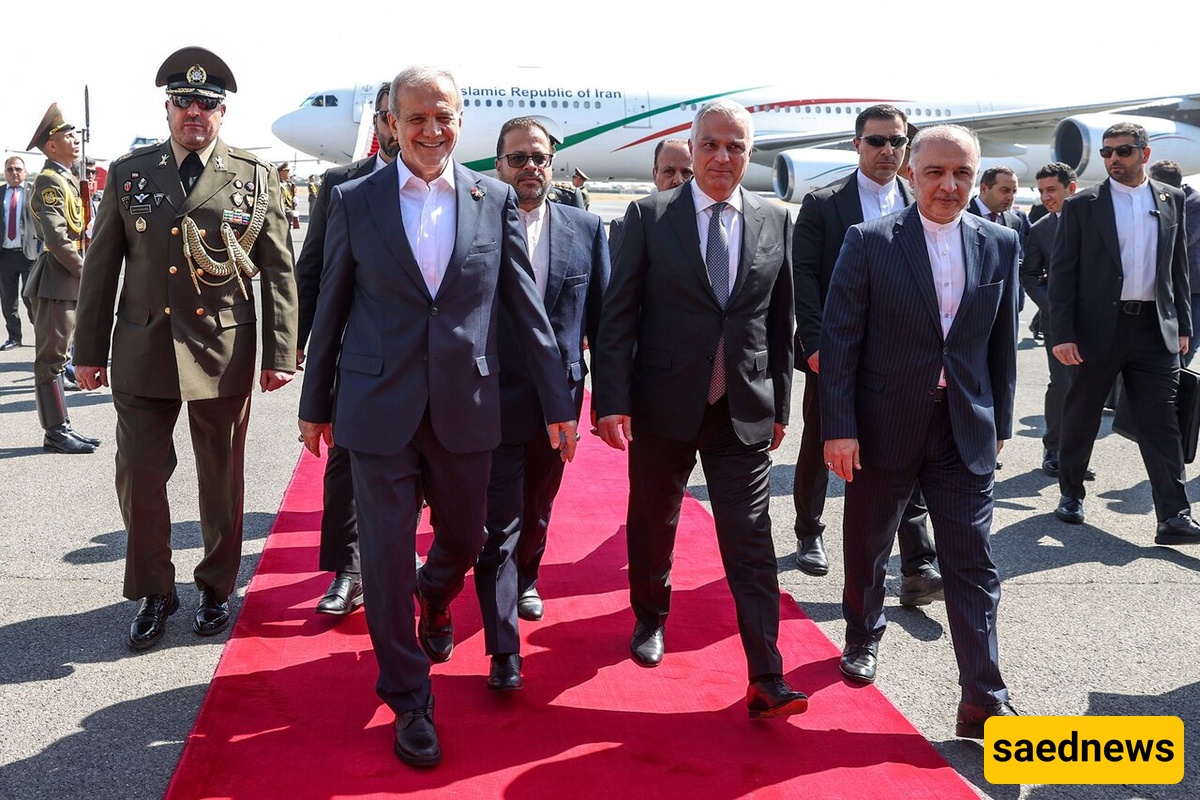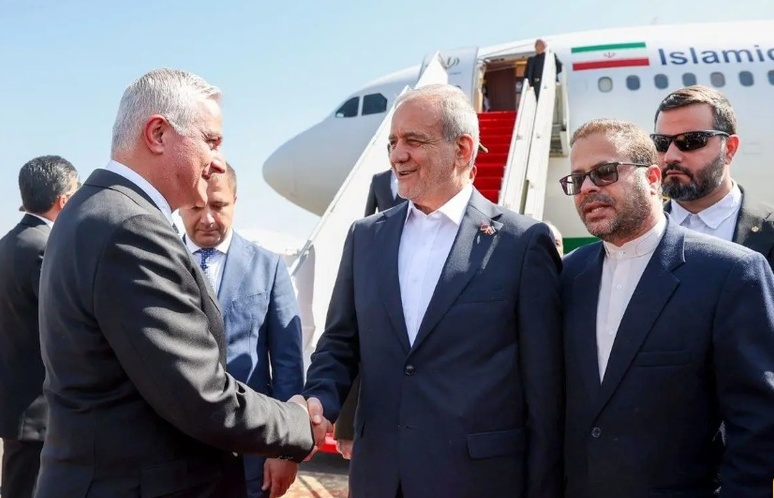SAEDNEWS: Iran’s President Masoud Pezeshkian launched a tour of Armenia and Belarus, warning that a recent U.S.-brokered deal with Azerbaijan threatens Iran’s regional access and red lines, while emphasizing stronger ties with Armenia and like-minded nations.

According to Saed News, Iran's President Masoud Pezeshkian began a two-nation tour on Monday, visiting Armenia first to discuss pressing regional issues, including a recent U.S.-brokered deal with Azerbaijan that analysts warn could lead to the presence of American forces near Iran’s northern borders and block the country’s access to Central Asia.

Pezeshkian was received by several senior Armenian officials upon his arrival in Yerevan. He later attended a meeting with Armenia’s Iranologists, where he underlined the deep and historic ties between the two nations and urged the researchers to expand their knowledge of Iranian history, culture, and society.
“The peoples of Iran and Armenia have never witnessed anything but goodwill, kindness, and friendship from one another. You can help make these ties even better,” the president told the scholars.
Before leaving Tehran, Pezeshkian addressed reporters alongside some of his ministers, noting that his stay in Armenia would feature the signing of key bilateral agreements. “During this visit, important memoranda of understanding and agreements will be signed, opening new horizons for preparing the appropriate economic and social ground in the country, which will be beneficial to the progress and advancement of our dear nation,” he said.
Iran shares a small land border with Armenia, which has become the focal point of Yerevan-Baku tensions in recent years. Azerbaijan seeks to connect its mainland to its exclave bordering Iran and Armenia via a new corridor. Iran has declared that while it does not oppose transit routes in principle, obstruction of its connection to Armenia constitutes a red line.
A recent U.S.-brokered peace deal, signed at the White House between Yerevan and Baku, has further heightened Tehran’s concerns. The agreement grants the U.S. exclusive rights to develop a route through the Armenian province bordering Iran. Although the deal is non-binding and still requires approval by Armenia’s parliament, Iran has already voiced strong opposition to the potential American control of the corridor. Since the signing, multiple phone conversations have taken place between senior Iranian and Armenian officials, with Yerevan pledging to take Iran’s concerns into account.
While in Tehran, Pezeshkian also expressed his unease over U.S. companies operating in the region, citing past cases where such firms acted in unexpected and unwelcome ways under the guise of business. “Given these concerns, we will hold serious talks on the challenges posed by this issue,” he added.
After wrapping up his Armenia visit, the Iranian president will head to Belarus. Pezeshkian praised the growing bilateral ties in economic, cultural, scientific, and social domains, saying he anticipates further cooperation in technology transfer, agriculture, industry, and social development.
“Belarus has consistently supported Iran in international forums, including by condemning Israeli attacks on our country and the aggression in Gaza,” he noted. The president emphasized that Iran has significant potential for collaboration with like-minded nations on strategic matters.

